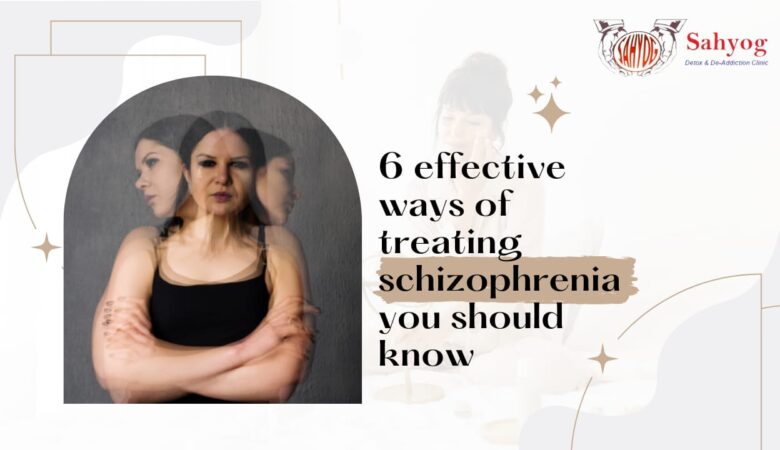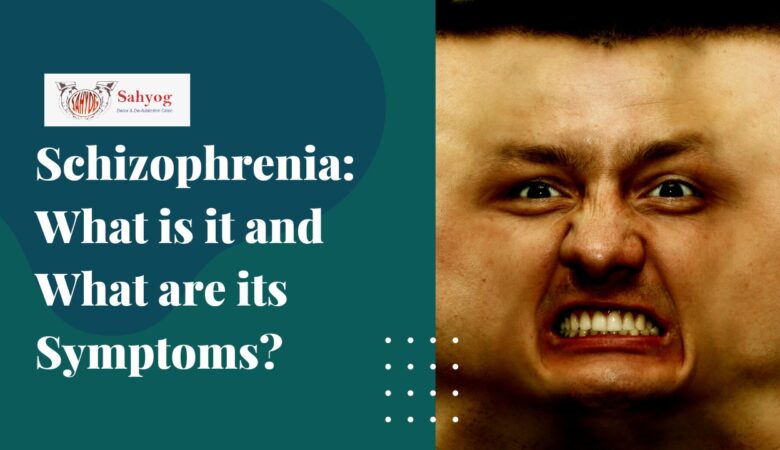6 Effective Ways of Treating Schizophrenia You Should Know
Introduction Schizophrenia is a severe mental illness that alters the way a person thinks, feels, and perceives the world around them. The symptoms of schizophrenia can be very disabling and make it difficult for someone to lead a normal life. While there is no cure for schizophrenia, there are treatments available that can help manage the symptoms and enable people to live fulfilling lives. In this article, we will explore six effective ways of treating schizophrenia. What is Schizophrenia? Schizophrenia is a mental disorder that can cause delusions, hallucinations, and disordered thinking. It is a serious condition that can be disabling and often requires lifelong treatment. Most people with schizophrenia will need medication to control their symptoms. In addition, psychotherapy and other supportive measures can be helpful. Early diagnosis and treatment of schizophrenia is necessary to get the best possible outcome. How is Schizophrenia Caused? There is no single known cause of schizophrenia, but a combination of genetic, psychological, and environmental factors are thought to play a role. While the exact cause of schizophrenia is unknown, it is believed to be a result of a combination of genetic and environmental factors. Family studies have shown that people with first-degree relatives (parents, siblings, or children) who have schizophrenia are more likely to develop the disorder than those without affected family members. This suggests that genes may play a role in the development of schizophrenia. In addition to genetic factors, psychological and environmental stressors are also thought to contribute to the development of the disorder. Symptoms of Schizophrenia The most common symptoms of schizophrenia are: Hallucinations: Hearing or seeing things that others do not. Commonly, people with schizophrenia will hear voices. These voices may give the person commands or say things that are critical of the person. Delusions: Having fixed false beliefs that are not based in reality are called delusions. For example, a person may believe that he or she is being watched or followed, even though there is no evidence to support this belief. Disorganized thinking: Having trouble organizing one’s thoughts or speaking in a clear and coherent manner. This can manifest as problems with speaking or writing coherently, or having jumbled thoughts. A person with a thought disorder may ramble on about topics that do not make sense, or they may make up words that have no meaning. They may also have trouble making sense of what others are saying to them. Negative symptoms: This refers to a flattening of emotions and/or withdrawal from social interactions and activities that were once enjoyed. People with negative symptoms may appear to be blank or emotionless, and may have difficulty starting or sustaining conversations. Effects of Schizophrenia The effects of schizophrenia may be minor or severe, depending on the person. People with schizophrenia often experience negative consequences as a result of their condition. These can include them socially isolating themselves, having relationship problems, facing difficulties in getting employment and even facing financial problems, and sometimes, in very rare cases, even self-harm and suicide. However, schizophrenia is a treatable condition. Once properly diagnosed, it can be treated with proper support and care. There are a number of different treatments available, including medication, psychological therapies and support, which will be further discussed in detail later in this article. How is Schizophrenia Diagnosed? A diagnosis of schizophrenia is usually made by a psychiatrist following a detailed assessment. This will usually involve taking a medical history, doing a physical examination and carrying out some psychological tests. The psychiatrist will also ask about any symptoms that the person is experiencing. If the person has had symptoms for less than six months, they may be diagnosed with brief psychotic disorder or schizophreniform disorder. If the person has had symptoms for more than six months, they may be diagnosed with paranoid schizophrenia, disorganized schizophrenia or catatonic schizophrenia. 6 Effective Ways of Treating Schizophrenia There are a number of effective ways of treating schizophrenia, and the most important thing is to get the right diagnosis and treatment plan. Treatment for schizophrenia usually involves a combination of medication and psychological therapy. The type of medication to be prescribed will depend entirely on the individual’s symptoms. Generally used specifics include antipsychotics, antidepressants and mood stabilizers. Psychological therapies that may be used to treat schizophrenia include cognitive behavioral therapy (CBT), family therapy and psychoeducation. These therapies can help to reduce the severity of symptoms and improve the person’s quality of life. It’s important to work with a team of professionals to create a comprehensive treatment plan. 6 effective ways of treating schizophrenia are as follows: Schizophrenia requires lifelong treatment. There is no cure for schizophrenia, but it is a treatable illness. With proper treatment, most people with schizophrenia can manage their symptoms and lead productive lives. Psychological therapies that may be used to treat schizophrenia include cognitive behavioral therapy (CBT), family therapy and psychoeducation. These therapies can help to reduce the severity of symptoms and improve the person’s quality of life. Psychotherapy can help people with schizophrenia learn to cope with their illness and manage their symptoms. It is important to work with a team of professionals to create a comprehensive treatment plan. This team may include a psychiatrist, psychologist, social worker and case manager. Antipsychotic medications are the cornerstone of treatment for schizophrenia. These medications can help relieve symptoms such as hallucinations, delusions, and thought disorders. It is important to take care of your physical health if you have schizophrenia. This includes eating a healthy diet, exercising regularly and getting enough sleep. Social support is important for people with schizophrenia. Family and friends can prove to be a great help in providing emotional support and practical assistance. There are a number of self-help groups available for people with schizophrenia and their families. These groups can provide support and information about living with the condition. Inpatient treatment may be necessary for some people with schizophrenia who are not able to function in the community or who are at risk for harming themselves


